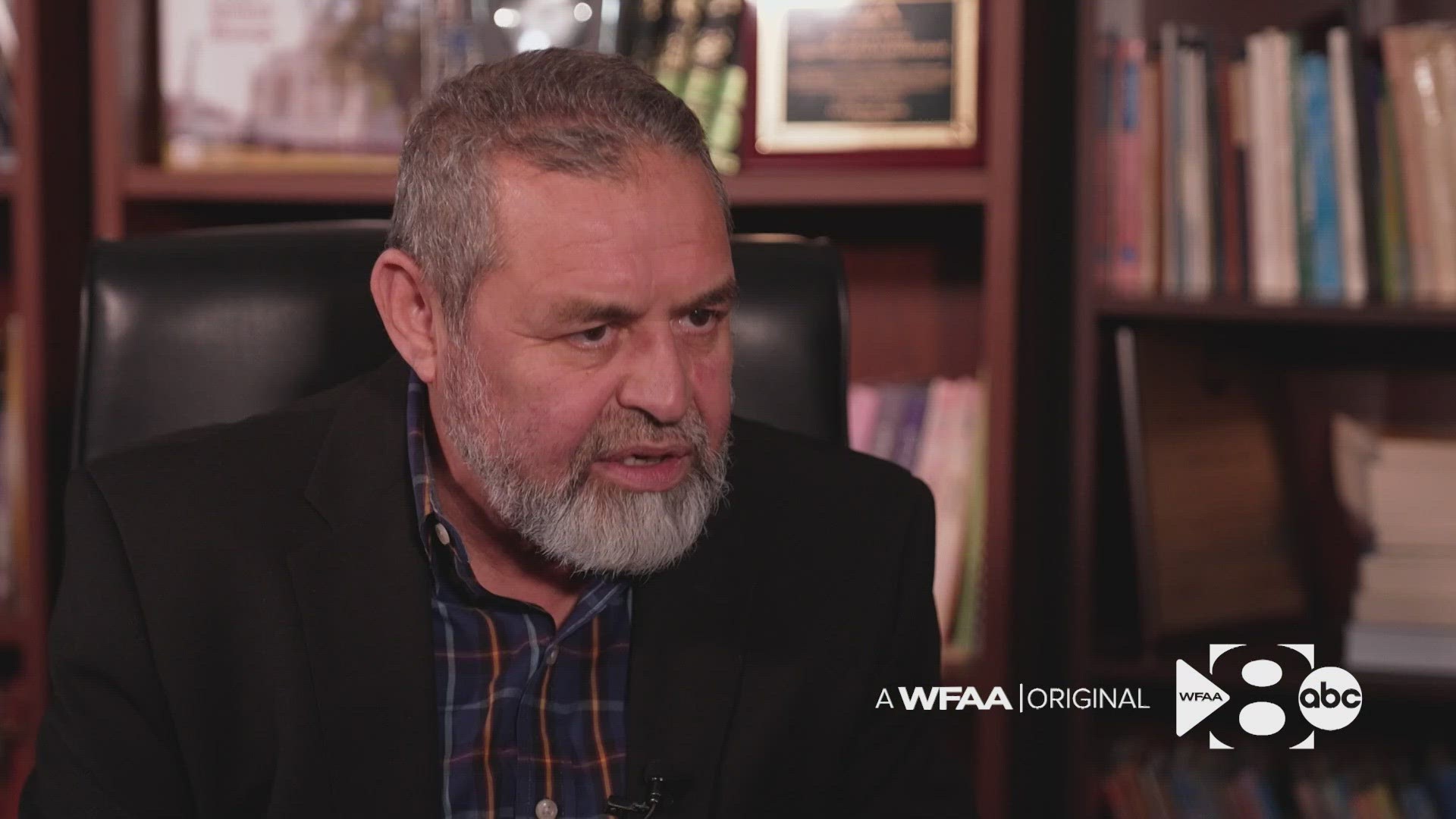DALLAS — An increasing number of high-profile family and domestic violence cases involving Muslim families has prompted community leaders to speak out.
The number of storylines has prompted WFAA to ask those who are working on the frontlines of the issue. Fighting for victims has become Mona Kafeel's life's work with the Texas Muslim Women's Foundation.
"Domestic violence is not a one-faith issue," said Kafeel. "It is very devastating. It is very shocking and it is depressing," said Imam Zafar Anjum. Both are active members of the Texas Muslim Women's Foundation (TMWF).
In Allen two families, the Towhids and the Sherwanis, were victims of family violence. And most recently a pregnant McKinney woman named Nawreen Nahar Tuli was found dead in her home. Her husband has been arrested and is facing murder charges.
"How can someone do that to anyone?" asked Nawreen's niece Tasneem Kabir.
Tuli was from Bangladesh. She was a brand promoter and a teacher. She had been in the U.S. for less than a year and with her husband for less than three months. Court documents reveal she was strangled in her bed.
"I personally feel that I failed and it's very tough," said Kafeel.
Mona never knew Tuli but still feels the guilt. Her group has safe shelters across North Texas for women and men fleeing the violence. Kafeel is careful not to draw too much attention to the locations of the safe shelters as many of the survivors are in hiding.
"I'm 62 years old. I'm educated and I'm well-traveled," said one woman who is being identified as Catherine. Catherine is one of the many women who have sought shelter with the help of the Texas Muslim Women's Foundation.
Catherine is a survivor of six years of verbal, physical, and emotional abuse.
"My abuser told me he was going to take me somewhere and no one will ever find my body," Catherine said.
Kafeel tells WFAA there is one commonality in all of these cases: 'It's power and control by the abuser.'
But Kafeel says women of color have additional barriers. There are internal and external pressures, language, and living constraints, that often require a cultural lens and that is why groups like TMWF are vital.
Imam Zafar Anjum of The Colony has mediated these domestic issues before. It pains him to hear when they end in suicide and murder. He stresses to WFAA that no part of this trend is a part of Islam.
"There is no place for this type of activity in Islamic teachings..." Anjum said.
We asked Mona if these violent cases are happening more often. She says that is a hard question to answer. In 2008 the foundation worked with 81 victim clients. Last year they had nearly 3,000 victim clients. Anjum adds that this uptick is somewhat due to the growing population of Muslims in the North Texas region. Kafeel adds that people are becoming aware that there is help out there and the group's awareness and education efforts are paying dividends.
Kafeel tells WFAA there is a huge mental health component that is, still, a rather taboo topic in families of color. She also says women especially, who live in insulated communities can often become isolated from their own immediate families. She says it is important for both men and women to understand what behaviors are acceptable.
"[Understand] what is ok and what is not ok and hence the huge increase," said Kafeel.
Catherine called the police more than 20 times on her abuser. She'd return to him thinking her abuser had changed. Catherine says the outside forces also reunite victims and abusers. Some victims may even be forced to return for their children.
"That's what makes me cry...because of the babies," Catherine said.
Nawreen Tuli returned to give her husband another chance and it would be her last. Tuli died three weeks later.
"It's a very very big loss for our family. She was the center of everything," said Kabir.
Mona is trying to reach the 1 in 4 women and 1 in 7 men who are victims of domestic and family violence.
"We have to go upstream and solve this issue. For me [helping them] is practicing my faith," said Kafeel.
Their foundation doesn't just serve Muslims. Every new high-profile case you see on the news becomes fodder for the already-prejudiced. For groups like TMWF every new case becomes a reminder there is so much to be done.
More North Texas headlines:

